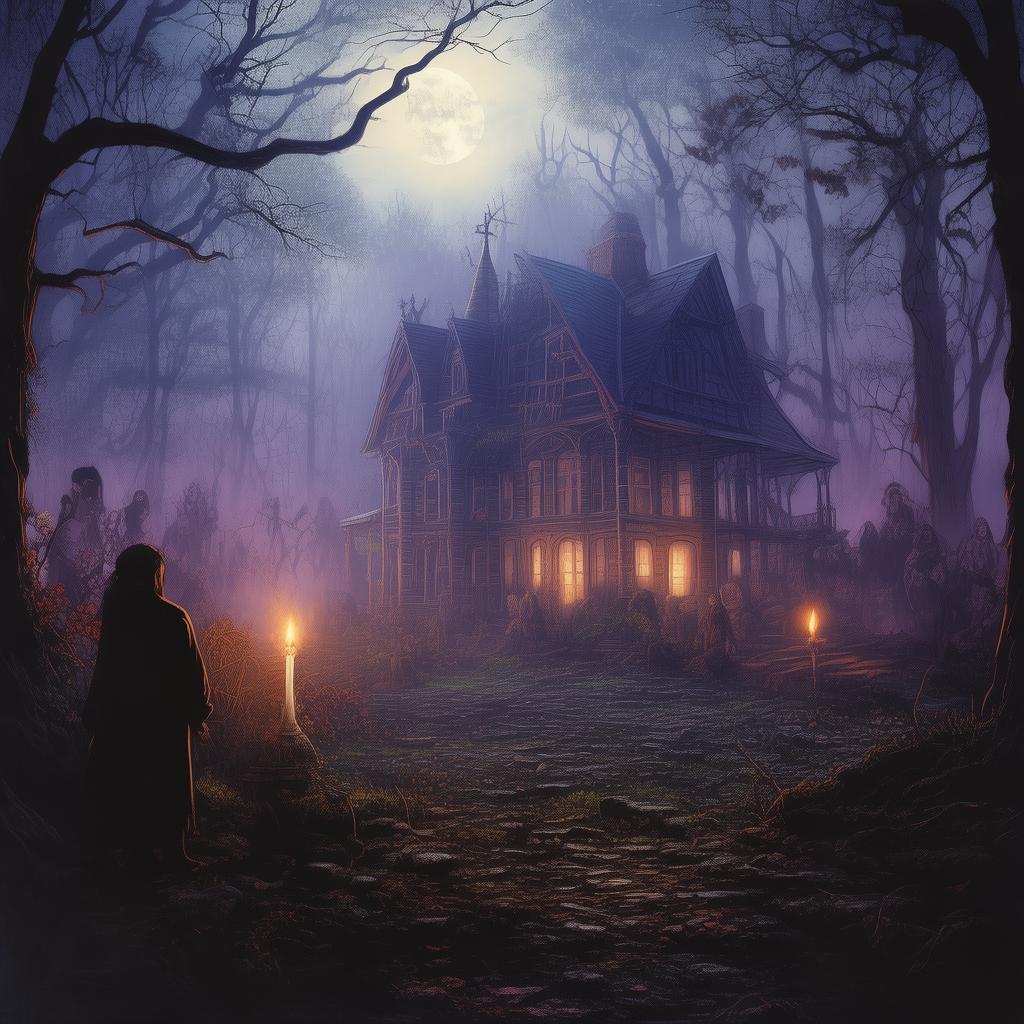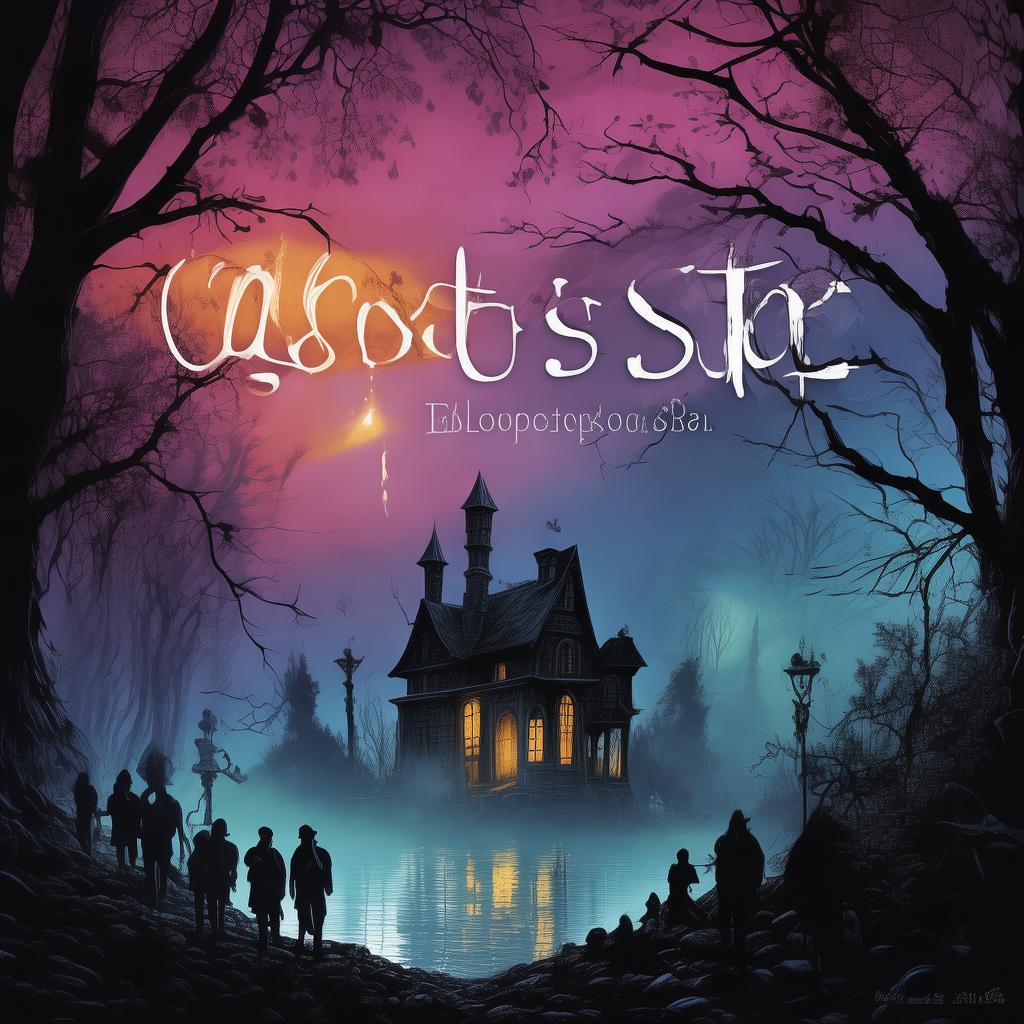The Lament of the Ancestors
In the heart of the vast Mongolian steppes, where the earth seemed to breathe with the ancient secrets of the Ancestors, there lay a small village shrouded in mystery and folklore. The village was called Baga, a place where the winds carried tales of the past, and the spirits of the ancestors roamed freely among the living.
The protagonist, Bayar, was a young man with a heart as vast as the steppes that surrounded his home. He was the son of a respected shaman, but Bayar had always felt a disconnection from his heritage. He preferred the quiet solitude of the mountains to the rituals of the village, and the stories of the ancestors were distant echoes to him, more legend than reality.
One night, as the moon hung low in the sky, casting a silver glow over the village, Bayar was awakened by a chilling wind that seemed to whisper through the walls of his home. He had heard the tales of the ancestors, how they could be both benevolent and malevolent, and now, he felt their presence more acutely than ever before.
The next day, as Bayar went about his daily tasks, he couldn't shake the feeling that something was wrong. The villagers spoke in hushed tones, their eyes darting nervously around as if expecting to see the shadow of a ghost. It was then that he learned of the curse, a curse that had befallen his family for generations, a curse that bound him to the spirits of his ancestors.
The curse was said to be the result of a forbidden ritual performed by Bayar's great-grandfather, a shaman who had sought to control the spirits for his own gain. In doing so, he had awakened a force that could not be contained, a force that now sought its revenge on his descendants.
Bayar's journey began with a visit to the village elder, an old woman whose eyes held the wisdom of centuries. She spoke of the spirits, of their need for atonement, and of the rituals that must be performed to break the curse. But Bayar knew that this was no simple task. He would have to confront the dark forces within himself, forces that he had long suppressed.
As Bayar delved deeper into his ancestors' history, he discovered that the spirits were not just the source of his curse, but also the key to his destiny. They were his guides, his protectors, and his greatest adversaries. They had lived through the triumphs and tribulations of his family, and they had stories to tell, stories that would change Bayar's life forever.
One fateful evening, as the village was enveloped in a deep, ominous silence, Bayar ventured into the forest to perform the ritual that would either break the curse or ensure its eternal hold on his family. The spirits were restless, and Bayar felt their power as he spoke the incantations, their voices a cacophony of ancient languages and forgotten songs.
The ritual was perilous, and Bayar was not alone. The spirits, both benevolent and malevolent, were watching, waiting to see if he would succumb to their influence. As he struggled to maintain his focus, he was haunted by memories of his ancestors, memories of their triumphs and their failures, their love and their rage.
In the climax of his struggle, Bayar was confronted by the most malevolent of the spirits, a being of shadow and darkness that had been the architect of the curse. The spirit taunted Bayar, promising power and knowledge in exchange for his obedience. But Bayar knew that he could not give in to the darkness; he must break the curse and restore balance to his family and his village.
With a final, desperate effort, Bayar summoned the strength of his ancestors, the strength of his spirit, and he confronted the spirit head-on. The battle was fierce, and Bayar's resolve was tested to the limit. But in the end, it was Bayar's love for his family and his commitment to the truth that won the day.

The spirit was banished, and the curse was broken. Bayar returned to the village, a changed man, his heart lighter and his spirit freed. The villagers welcomed him back with open arms, and he was hailed as a hero, a savior who had restored peace to their land.
But the journey was far from over. Bayar knew that the spirits of his ancestors would always be with him, guiding him on his path. He had learned that the past is not a burden to be carried, but a gift to be cherished, a testament to the resilience and strength of his people.
And so, Bayar lived on, a bridge between the world of the living and the world of the spirits, a man who had faced the darkness and come out victorious. His story became a legend in Baga, a tale of courage and redemption, a story that would be told for generations to come.
✨ Original Statement ✨
All articles published on this website (including but not limited to text, images, videos, and other content) are original or authorized for reposting and are protected by relevant laws. Without the explicit written permission of this website, no individual or organization may copy, modify, repost, or use the content for commercial purposes.
If you need to quote or cooperate, please contact this site for authorization. We reserve the right to pursue legal responsibility for any unauthorized use.
Hereby declared.









